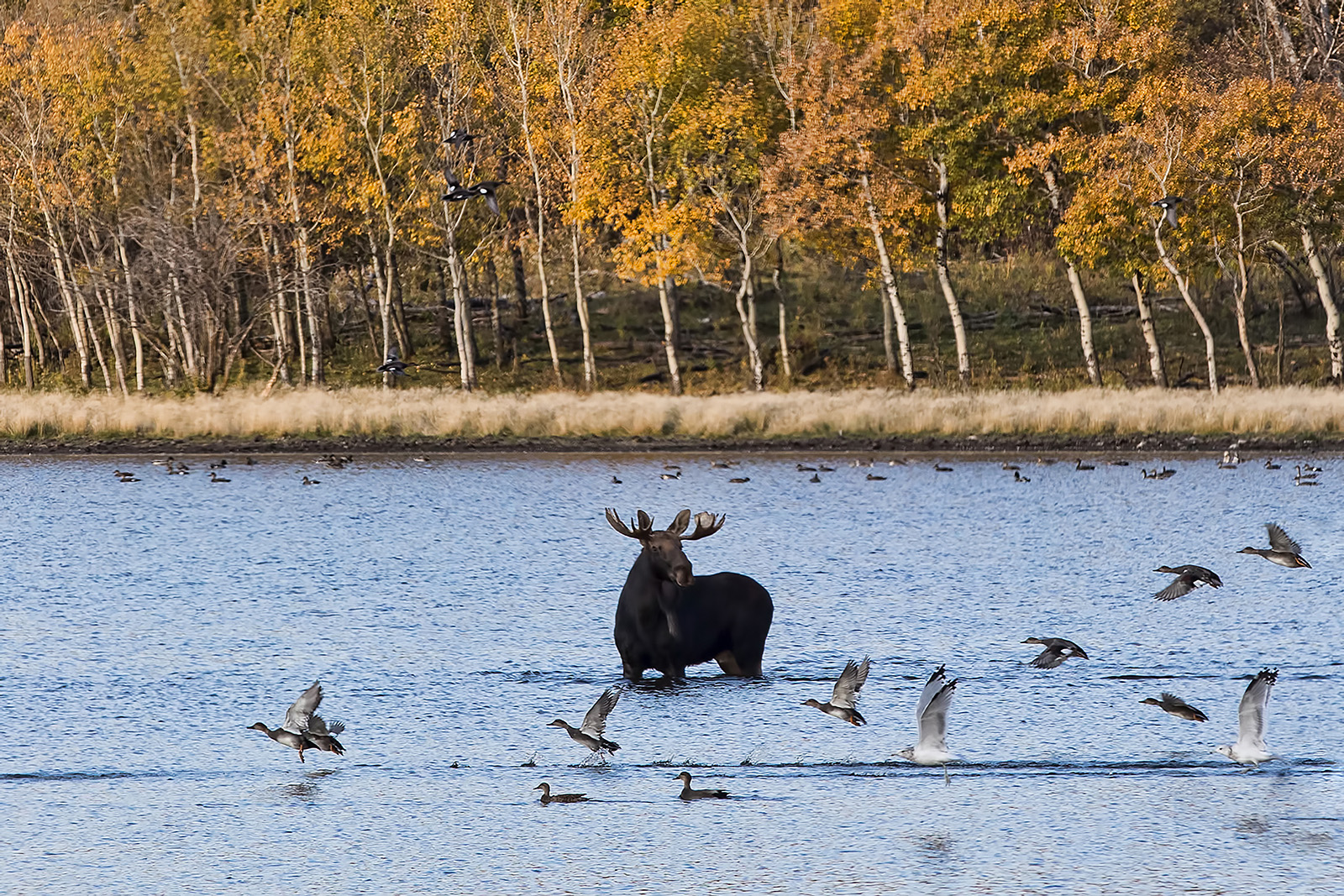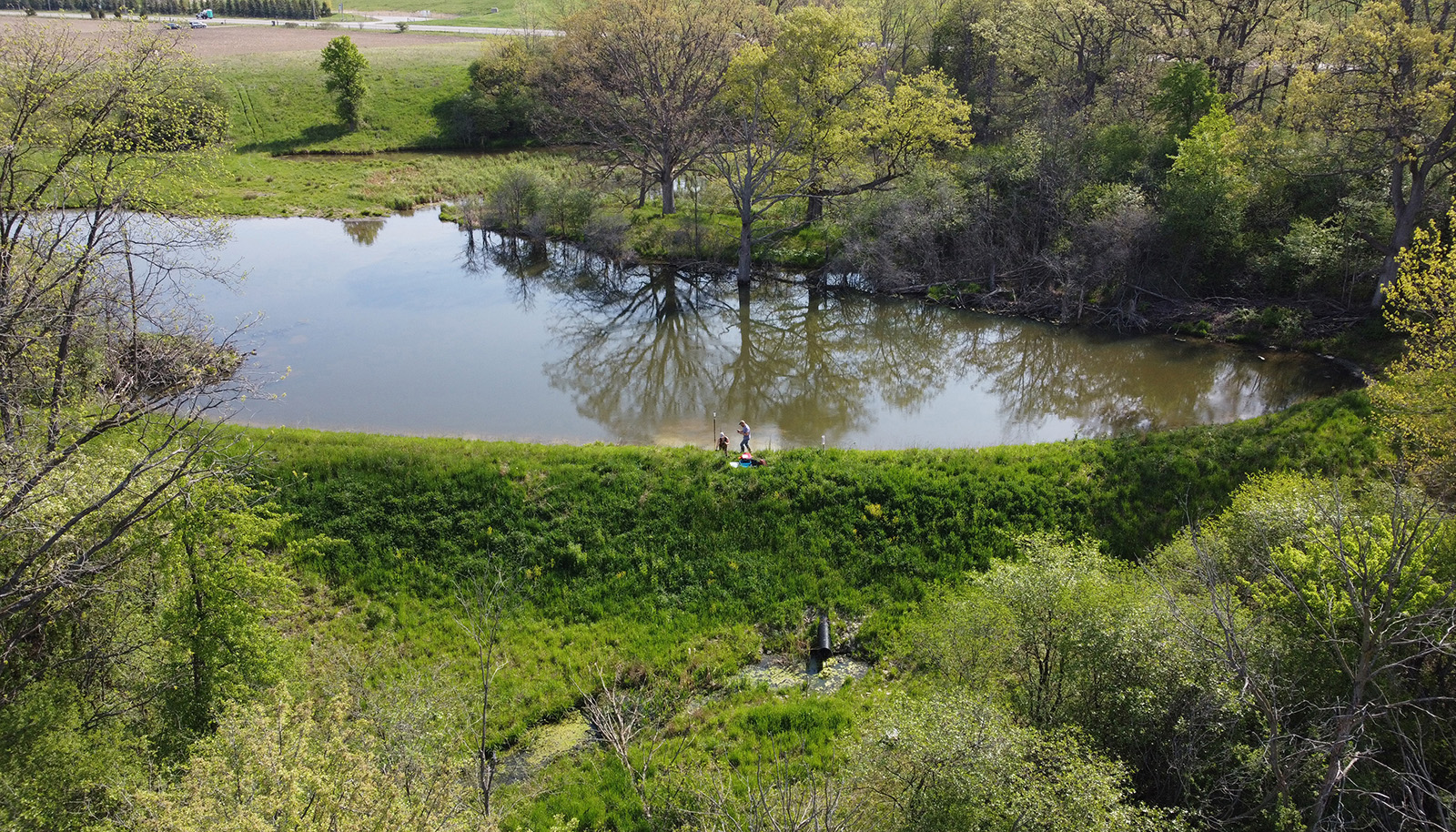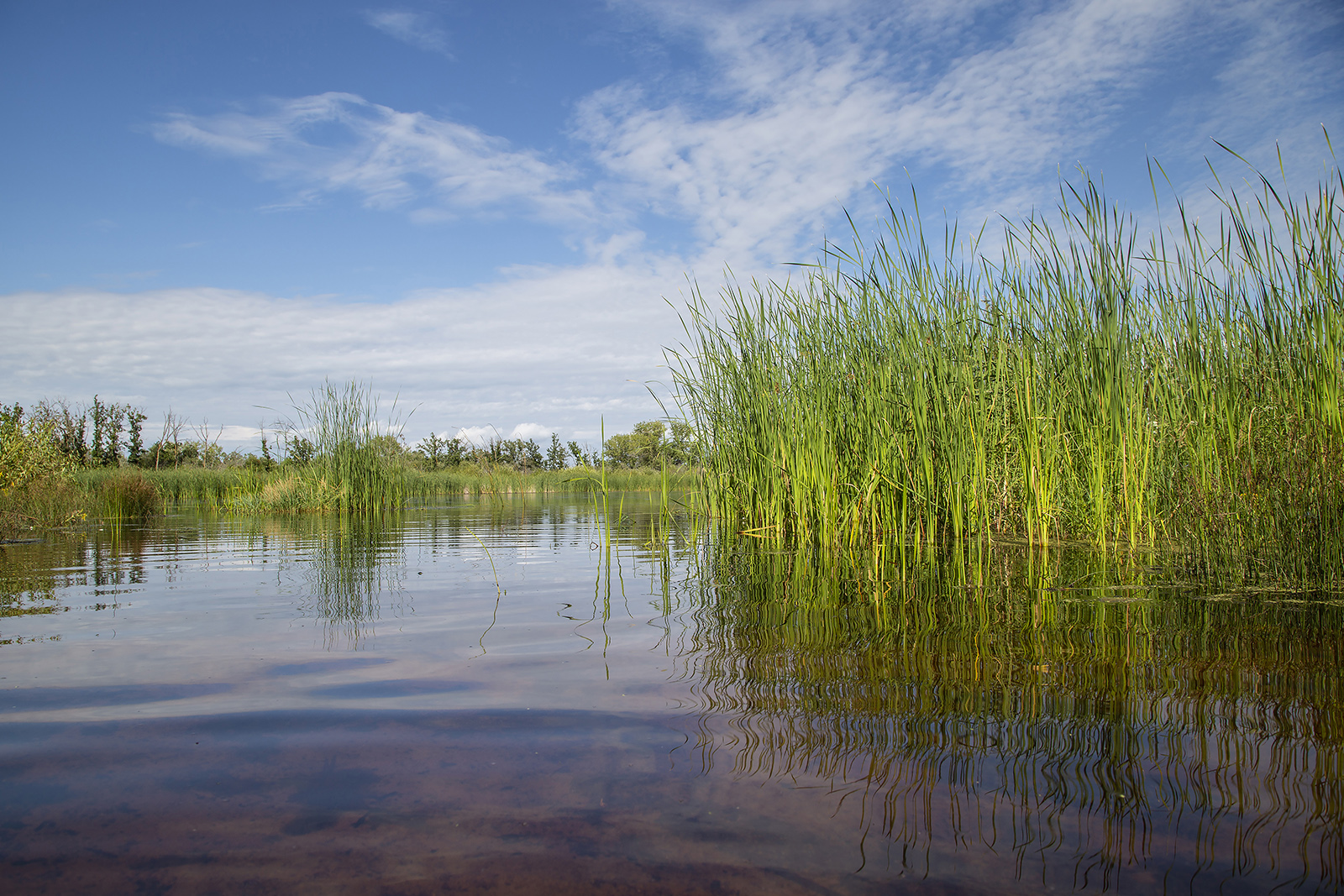Thriving biodiversity starts with clean water and healthy wetlands
Contributed by Ducks Unlimited Canada
The phrase “water is life” is simple and true. All living things, from microscopic bacteria to massive blue whales, need water to survive.
Today, as the world faces historic biodiversity losses with more than one million species at risk of extinction, the phrase is also a reminder of where we must focus our attention and conservation resources.
Across Canada, lakes and rivers supply drinking water to millions of people, provide habitat for thousands of species and serve as the backdrop to many of our favourite outdoor activities. Enjoying our country’s beautiful natural landscapes and all they have to offer is a part of our identity. What’s more Canadian than skating on a frozen pond or paddling a canoe across a calm lake? But access to a clean, abundant water supply is something many of us take for granted.

Canada’s troubled waters
Canada is home to approximately 20 percent of the world’s freshwater resources. But the dual crises of climate change and biodiversity loss are impacting our lakes and rivers. Run-off, pollutants, invasive species and toxic blue-green algae are becoming larger threats. This past summer, in provinces across the country, many beaches were temporarily closed due to poor water quality.
How can we be more responsible with this crucial resource and its ecosystems? As a country, we need to work together and commit to a clear plan of action to support biodiversity and protect our freshwater ecosystems by conserving and restoring our coastal and inland wetlands. Fortunately, Ducks Unlimited Canada (DUC) can help.

Wetlands: a nature-based solution
We know there is an effective solution for chronically sick waterbodies that can be implemented at individual and community scales: wetlands. Wetlands are the link between land and water and are some of the most productive ecosystems in the world. They include marshes, swamps, bogs, ponds, estuaries and fens, which serve as important components of watersheds. These powerful, and often underappreciated, ecosystems help slow runoff from the surrounding landscape, keeping excess phosphorus, nitrogen, and other harmful nutrients from entering lakes and streams. Wetland vegetation traps sediment and pollutants, and wetland microorganisms break down the contaminants. This allows clean water to flow downstream where native flora and fauna can flourish.
Wetlands themselves are rich in biodiversity. It’s estimated that up to 40 per cent of the world’s species live and breed in wetlands. Some wetland species like dragonflies are highly sensitive to changes in the environment, and their welfare has become an important indicator of the overall health of the ecosystems where they live and breed.
As populations of these indicator species decline due to habitat loss and water quality degradation, we need to take notice. What befalls one befalls another, which increases the risk of “extinction cascades” where an initial species loss leads to a domino effect of further extinctions.
Science shows wetland conservation and restoration improves water quality
For more than 80 years, DUC has been leading the way in wetland conservation and research that’s helping address issues related to Canada’s water quality and quantity. Today, safeguarding a clean, reliable water supply is of paramount importance, as water continues to be contaminated by runoff from urban centres, agriculture and other industrial activities.
“Our science tells us that wetlands act as nature’s water filter,” says Mark Gloutney, DUC’s national director of science, education and business planning.
Gloutney points to a two-year study on newly restored wetlands in the Lake Erie watershed. DUC researchers monitored water inflows and outflows to measure how efficiently unwanted nutrients, such as phosphorus, were captured. Excess phosphorus is a key contributor to blue-green algae growth that can be toxic, killing fish and harming other wildlife.
DUC research has proven the effectiveness of restored wetlands in filtering out these nutrients before they reach our waterways, with results from this study showing us that these small wetlands were effective at filtering water under a variety of conditions—protecting downstream rivers and lakes in all seasons.
“By identifying and quantifying the functions and values of wetlands relative to the supply and quality of fresh water in North America, we can showcase the economic and ecological benefits of protecting and restoring these ecosystems,” says Gloutney. “This is particularly important in agricultural landscapes where wetland conservation and restoration can offer natural solutions that can support food production while also protecting nature.”

Taking action for wetlands, clean water and biodiversity
Without clean water, communities face declining health and opportunity. As we lead up to the COP15 conference in Montreal, discussions will focus on protecting nature and halting biodiversity loss around the world, with the importance of clean water as one of several priorities. Although much progress has been made, more work is needed. Some key actions we believe need to be taken to bolster watershed resilience include:
1. Protecting wetlands through the establishment of effective policies in all provinces and territories that recognize wetlands as nature-based solutions and valuable natural capital.
2. Continuing to partner with agriculture to develop sustainable solutions that work within the context of modern agricultural practices.
3. The successful creation of the federal government’s new Canada Water Agency aimed at keeping Canada’s water safe, clean, and well-managed.
Clean, accessible water is fundamental to human health, the environment and a sustainable economy. Restoring the lost functions of wetlands in watersheds are a natural solution to sustaining biodiversity and supporting clean drinking water for all Canadians.
Clean water for all
Make a donation to Ducks Unlimited Canada to support our work conserving wetlands, sustaining biodiversity and supporting clean drinking water for all Canadians.
Keyword : biodiversity, Canada wetlands, canada wildlife, clean water, ducks unlimited, lake erie, wetlands, wildlife biodiversity, Canada wetlands, canada wildlife, clean water, ducks unlimited, lake erie, wetlands, wildlife